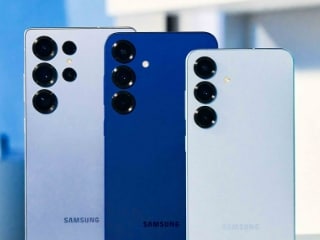- Home
- Internet
- Internet News
- Google to Start Ranking Websites With Popup Ads Lower in Mobile Search Results
Google to Start Ranking Websites With Popup Ads Lower in Mobile Search Results

Google announced on Tuesday that starting January 10 next year, websites that allow intrusive interstitial advertisements that hinder immediate access to content, will start ranking lower in its mobile search results.
In its blog post to webmasters, Google said, "Pages that show intrusive interstitials provide a poorer experience to users than other pages where content is immediately accessible. This can be problematic on mobile devices where screens are often smaller."
As a result of this change, the ranking of those websites will be lowered if they contain advertisement popups that covers the main content, either immediately after the user navigates to a page from the search results, or while they are looking through the page. Google has also mentioned other scenarios where the unnecessary advertisements affect users' browsing over here.
However, the California-based company has pointed out that there are certain exceptions where the popups or messages are necessarily required by the websites and cannot be avoided. Such cases include interstitials that appear in response to legal obligations, such as for cookie usage or for age verification. Even is the advertisements use reasonable amount of screen space won't impact the website's ranking, Google said.
Moreover, Google also admitted that the websites where the content Is not indexable and sits behind a paywall, login dialogues are necessarily required and can't be avoided.
Google also announced that it will be removing the mobile-friendly label from its search results as it has found that around 85 percent of the websites in its search results now meet the criteria since their introduction in 2014. The mobile friendly label was essentially given to a website that was optimised for mobile devices, for example, where the text and content was readable without zooming and the tap targets are appropriately spaced. It added that even though the label is being removed to make search results "uncluttered," the criteria will still continue to be a ranking signal.
Catch the latest from the Consumer Electronics Show on Gadgets 360, at our CES 2026 hub.
Related Stories
- Samsung Galaxy Unpacked 2025
- ChatGPT
- Redmi Note 14 Pro+
- iPhone 16
- Apple Vision Pro
- Oneplus 12
- OnePlus Nord CE 3 Lite 5G
- iPhone 13
- Xiaomi 14 Pro
- Oppo Find N3
- Tecno Spark Go (2023)
- Realme V30
- Best Phones Under 25000
- Samsung Galaxy S24 Series
- Cryptocurrency
- iQoo 12
- Samsung Galaxy S24 Ultra
- Giottus
- Samsung Galaxy Z Flip 5
- Apple 'Scary Fast'
- Housefull 5
- GoPro Hero 12 Black Review
- Invincible Season 2
- JioGlass
- HD Ready TV
- Laptop Under 50000
- Smartwatch Under 10000
- Latest Mobile Phones
- Compare Phones
- Realme Neo 8
- OPPO Reno 15 FS
- Red Magic 11 Air
- Honor Magic 8 RSR Porsche Design
- Honor Magic 8 Pro Air
- Infinix Note Edge
- Lava Blaze Duo 3
- Tecno Spark Go 3
- Acer Chromebook 311 (2026)
- Acer Chromebook Spin 311
- Lenovo Idea Tab Plus
- Realme Pad 3
- Moto Watch
- Garmin Quatix 8 Pro
- Haier H5E Series
- Acerpure Nitro Z Series 100-inch QLED TV
- Asus ROG Ally
- Nintendo Switch Lite
- Haier 1.6 Ton 5 Star Inverter Split AC (HSU19G-MZAID5BN-INV)
- Haier 1.6 Ton 5 Star Inverter Split AC (HSU19G-MZAIM5BN-INV)







![[Sponsored] Haier C90 OLED TV | Dolby Vision IQ, 144Hz OLED and Google TV in Action](https://www.gadgets360.com/static/mobile/images/spacer.png)









